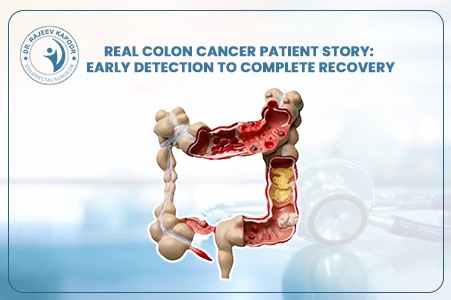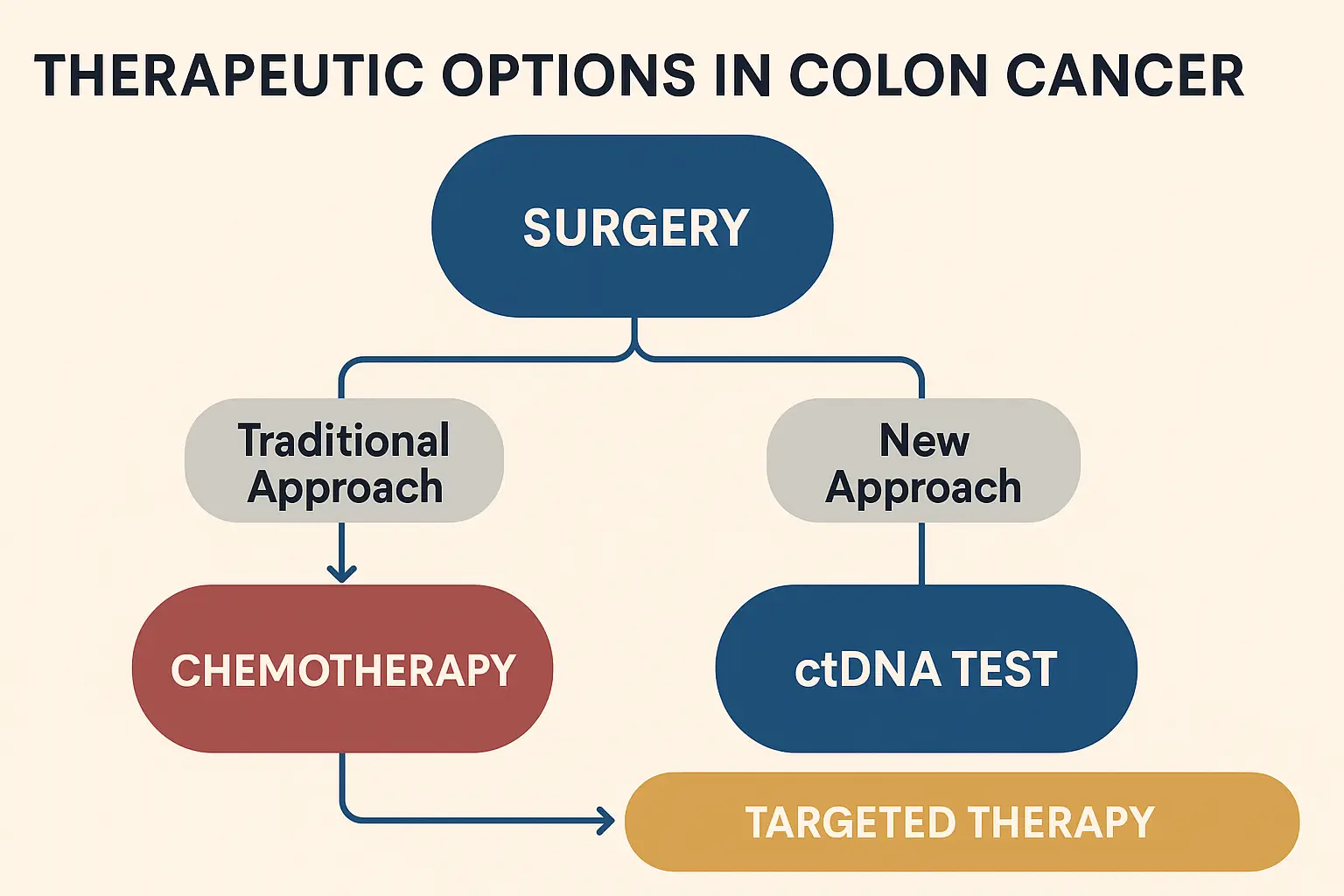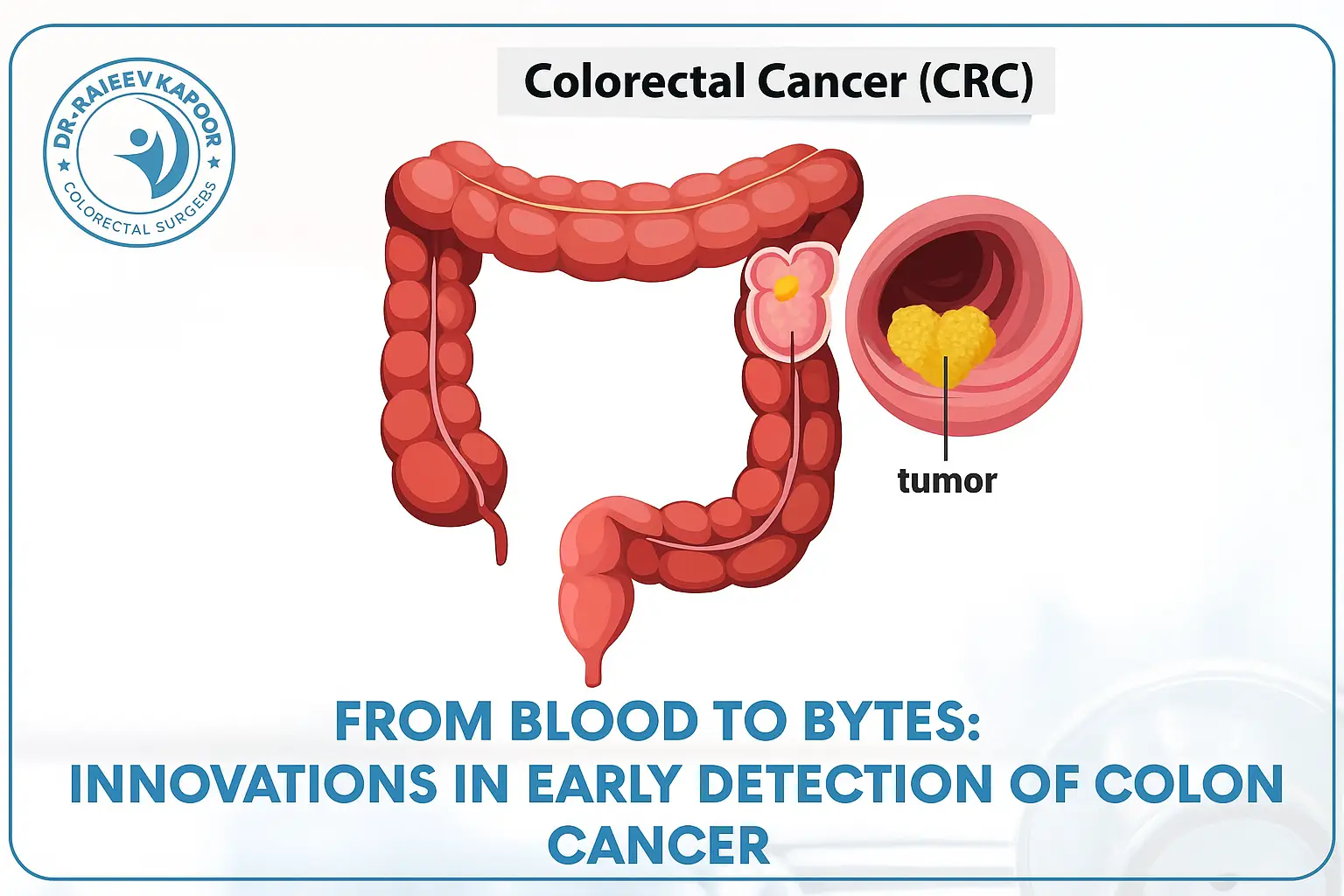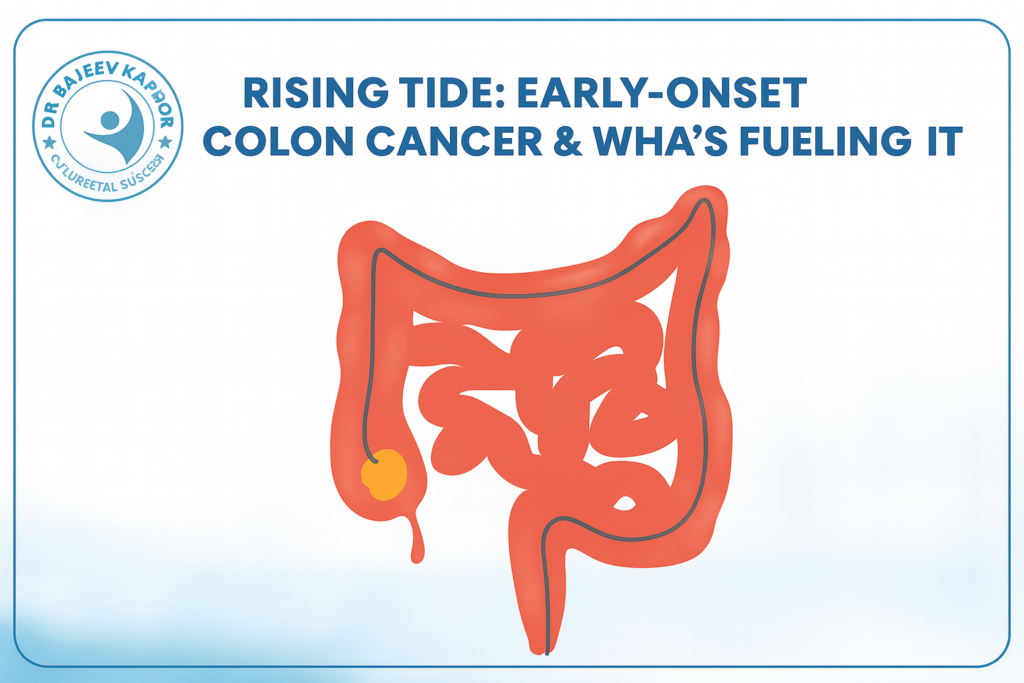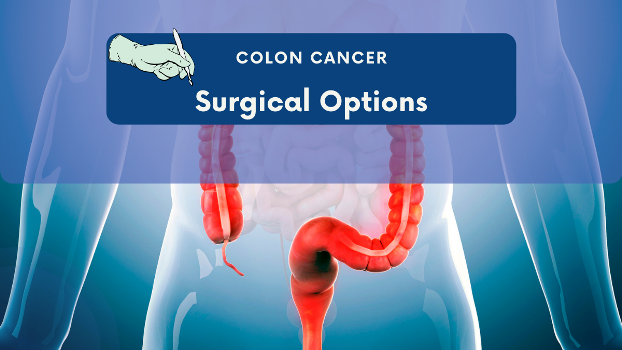Real Colon Cancer Patient Story: Early Detection to Complete Recovery
Mr. Khanna’s story began with two signs that should never be ignored—persistent abdominal pain and blood in the stool. These symptoms are common in many conditions, but they are also early warning signs of colorectal cancer. His doctor advised immediate tests, including a CT scan and then a colonoscopy. The colonoscopy showed a growth in the right side of the colon that looked cancerous. He met me soon after. I explained that colon cancer often starts as a small polyp that slowly grows over years. Many people have no symptoms until the tumour becomes large. In Mr. Khanna’s case, the safest and most effective treatment was surgery. He underwent a laparoscopic right hemicolectomy, which is the standard operation for cancers on the right side of the colon. In this procedure, the part of the bowel containing the tumour is removed, along with the blood vessels and lymph nodes that drain that area. This is important because cancer cells can travel through these channels. We removed around 30 lymph nodes, which gave us a clear picture of how far the disease had spread. Laparoscopic surgery, done through small cuts, usually means less pain, quicker recovery, and faster return to normal activity. Mr. Khanna recovered well and went home in five days. Thirteen days later, the final pathology report came. The cancer had been completely removed with clear margins, meaning no cancer cells were left behind at the edges. All his lymph nodes were negative for cancer. This placed him in Stage II colon cancer. However, the tumour had reached the outer layer of the bowel wall, known as the serosa. When a tumour grows this deep, there is a higher chance—though still small—of cancer cells escaping into the bloodstream. Because of this “high-risk” feature, chemotherapy was advised to lower the risk of the cancer returning. He had a chemo port inserted in his chest. Chemotherapy for colon cancer usually involves drugs like oxaliplatin and capecitabine/5-FU, given over three months in Stage II high-risk cases. These medicines target any microscopic cancer cells that surgery cannot see. The first few cycles went as expected—tiredness, nausea, changes in taste. After the third cycle, he developed fever and a rash. Tests showed herpes zoster (shingles), an infection that can occur when immunity is low during chemotherapy. He was treated with antiviral medication, recovered fully, and safely completed the rest of his chemotherapy. Today, Mr. Khanna has finished treatment and is doing well. For colon cancer survivors, follow-up care is very important. His plan includes: • Blood tests, including CEA (a tumour marker) • Periodic CT scans to check the abdomen and chest • Regular colonoscopies to detect new polyps early • Lifestyle advice—healthy diet, regular exercise, weight control, and avoiding smoking His story shows how colon cancer is diagnosed and treated today. Early symptoms may be mild. Early surgery, when possible, offers the best chance of cure. Chemotherapy adds extra protection when the tumour shows high-risk features. By sharing his journey, we hope people understand the importance of recognising symptoms, seeking medical help early, and trusting modern treatment pathways. With timely care, most patients with early-stage colon cancer can expect excellent long-term outcomes and a full return to normal life.

